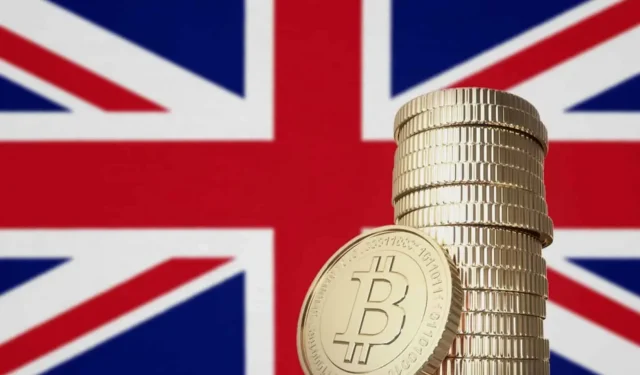The UK is currently considering implementing a central bank digital currency (CBDC). When will Britcoin be?
The Bank of England reports that about 95% of the funds people hold to make payments are currently held in the form of bank deposits rather than cash. Combined with the growing interest in digital assets such as cryptocurrencies, one can only think that a digital pound sterling would be a good idea. Will the UK go so far as to introduce a central bank digital currency (CBDC) in the near future?
Is “Britcoin”possible?
Chancellor Rishi Sunak recently announced an “ambitious”plan to advance fintech, including the creation of a working group bringing together HM Treasury – the UK government’s executive department responsible for developing and implementing public finance and economic policy – and the Bank of England. to explore the possibilities of the British CBDC. This group will reach out to various stakeholders about the benefits, risks, and feasibility of a CBDC. He will also explore the opportunities and risks of a possible UK CBDC.
Advantages and disadvantages of such a CBDC
The digital pound can be very attractive to the average consumer. Cash transactions are on the decline, with most payments in the UK being made using bank cards or other digital means. People seem to be looking to bitcoin and other cryptocurrencies to decide what to spend their money on. On the other hand, these digital assets can be extremely volatile. They also cause a number of environmental problems. Stablecoins would be the perfect middle ground. And there are fears that sterling transaction fees will make this possible currency vulnerable to stablecoins, undermining the country’s financial stability. CBDC will be automatically guaranteed by the country, like cash, which will reduce the risks.
However, one of the biggest benefits will be that the CBDC will support new emerging technologies. Fintech has a lot to offer, that’s for sure. CBDC will be useful in fintech, of course, in the blockchain, which will obviously transform the entire payment industry. This would be a real innovation in the way money is offered to the public and in the infrastructure over which payments are made. It will also provide more transparency for money tracking. CBDC will work alongside cash and bank deposits.
However, as with anything new, there are risks. As for the CBDC, the main concerns are that it is a centralized form of currency and that it could infringe on the privacy of citizens. Jasmine Myrtles, CEO of MoneyMagpie, explains very well: “The idea behind a CBDC is that all transactions and all cash flows go through the central bank and that the central bank (government) knows everything. time. They will know where we get the money, how and when, and will be able to tax us at source before we even get the money. This will eventually destroy democracy and establish a digital dictatorship. Otherwise it can not be “. Legal and regulatory issues can also arise with respect to CBDCs, since no one really knows who will come to regulate them. To consider a CBDC accepted,
CBDC around the world
While no country has officially launched a CBDC, according to the Atlantic Council think tank, as of July 2021, about 80 are exploring the possibility of doing so. The first big name that comes to mind is obviously China, where the digital yuan has been in development for a few years now. It remains to be hoped that its Digital Currency Electronic Payments (DC/EP) will accelerate the transition to a cashless society and enable the incorporation of the unbanked population into the national economy. Other countries under feasibility study include Canada, Uruguay, Thailand, Venezuela, Sweden and Singapore.
Ultimately, the CBDC will function like a true fiat currency, offering the convenience and security of digital currencies with a traditional bank’s reserve. A best-of-both-worlds scenario that would theoretically provide a certain amount of benefits to the countries that implement it. If the UK government has not yet made a decision, it is clear to the Treasury that the future is with the CBDC.


